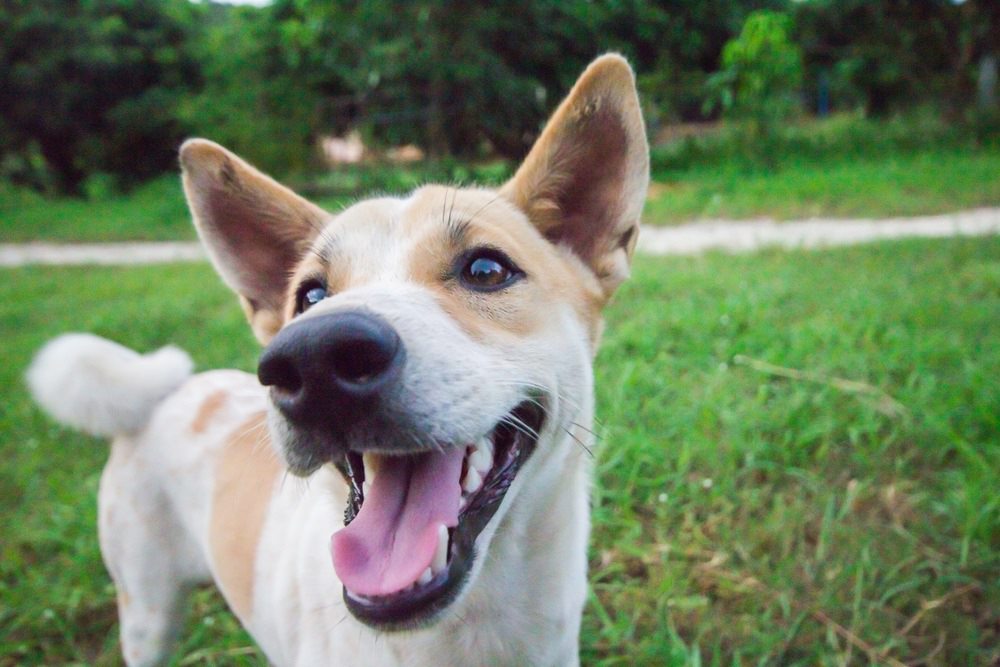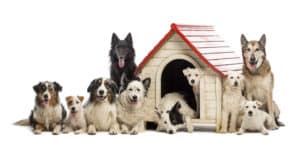
What is parvovirus?
Parvovirus, otherwise known as the shortened term of parvo, is a harmful virus that attacks the lining of a dog’s intestines. It is transmitted through faeces and has a frightfully high death rate of 90% when it is left untreated.
Dogs that have recently recovered from parvo excrete the virus whilst going to the toilet, leaving it on the grass in local parks, or on sidewalks, where it can be ingested by other dogs. The dirt containing the virus can even get onto their fur, from which they will contract the illness after washing themselves.
The virus is most common in puppies under six months old, who are more likely to pick items up in their mouths, including the faeces from other dogs. Their sensitive systems will quickly dehydrate and lead them into a dangerous health situation. When exercising dogs who are unvaccinated, make sure to take them into your garden only – never put them on the ground in public where contaminated dogs might have been roaming and fouling.
Cases of parvo are common in Australia. A study found that 20,000 cases of the disease were recorded every year, with over half of them resulting in death. This means that taking procedures to avoid your dog getting sick are important. Even still, if the unlikely event happens in which your dog falls ill with parvo, here is what you should do.
What are the symptoms?
If your dog exhibits any of these symptoms, this could be indicative of a parvo infection:
- Bloody, foul-smelling diarrhoea
- Violent and excessive vomiting
- Lethargy; lack of energy
- Fever; their skin might feel hot or cold to touch
- Reduction in appetite, little interest in eating
If you encounter these, take them immediately for emergency care. Be aware that you might be instructed to stand outside the clinic with your dog until the vet is ready to see them, in order to avoid close contact with other unvaccinated animals who are in the waiting room.
How to treat parvo?
While there is no cure for parvovirus, it can be treated. Treatment will typically consist of intensive nursing at the clinic, where they will be wired up to a drip to replace the fluid they are losing from the vomiting and diarrhoea. Without a drip, dangerous levels of dehydration can cause rapid fatality in your pet, or if not, leave them susceptible to organ complications upon survival. They might be fed through a stomach tube if they are refusing to take food.
Antibiotics can be given to your pet to reduce their chances of contracting another bacterial infection whilst their immunity is down.
Getting your dog into the clinic as soon as possible will be essential to avoid any long-term complications.
When your pet has recovered from the worst of the condition, you can treat them from home by encouraging them to eat bland food – which can be provided by your vet – and drink often, alongside getting plenty of rest. Walks will not be necessary whilst they are still getting better, but they will need constant access to a backyard where they can go to the toilet, as they will need to do this more frequently than usual.
How to ensure your dog does not get parvo
The most effective way to prevent your dog from contracting parvovirus is to get them vaccinated. Puppies can receive the vaccine at twelve weeks old, whereas an unvaccinated adult dog can receive one at any time. If your dog has not received theirs, why not get in touch with us today at Blue and White Veterinary Clinic? Please consult with one of our expert veterinarians at Blue and White Veterinary clinic.



